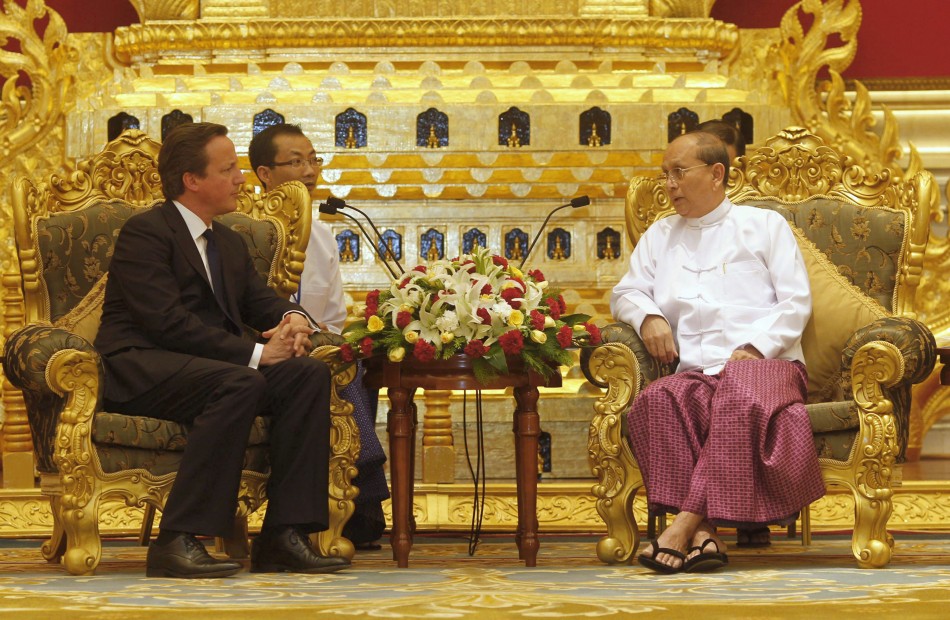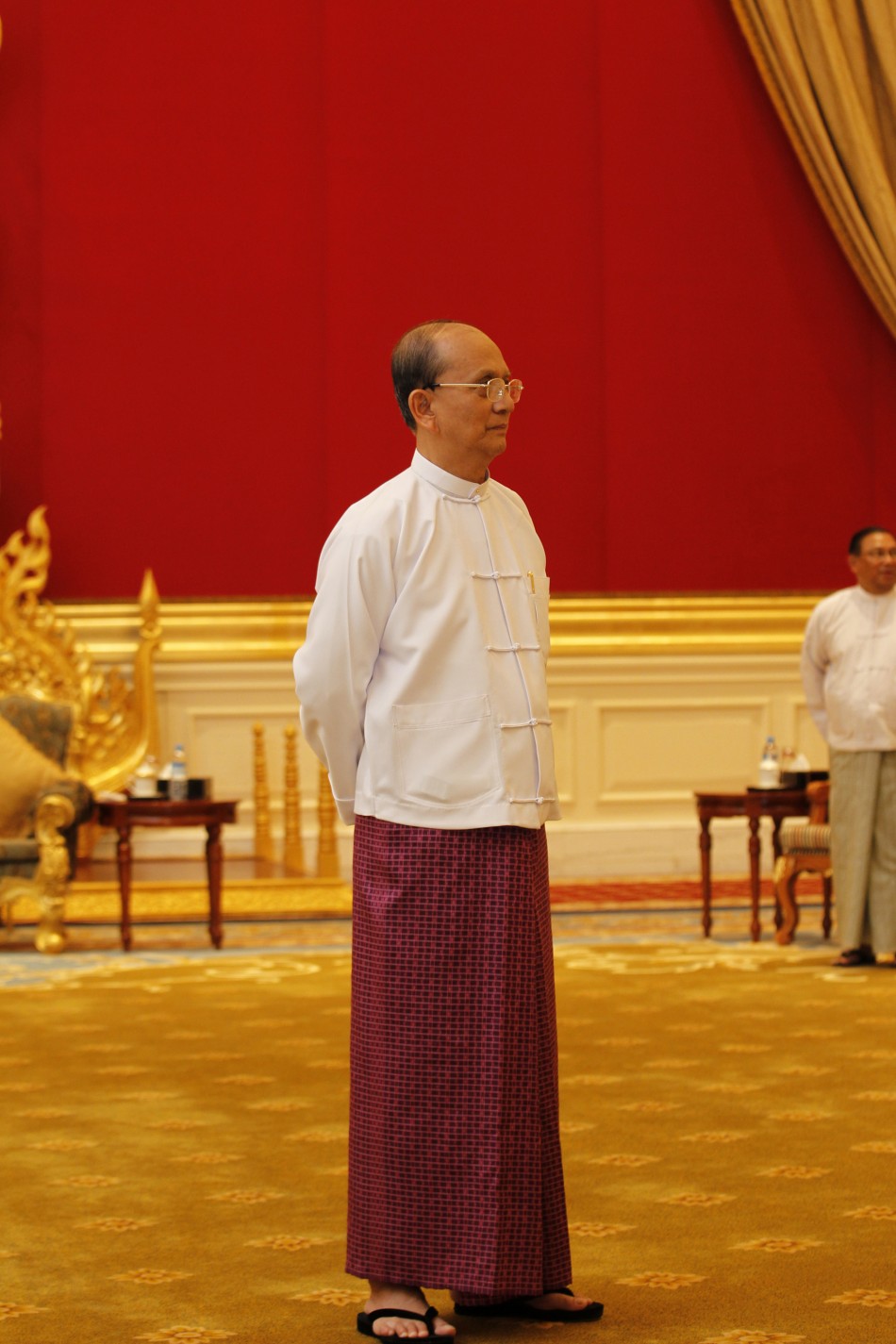David Cameron Makes Historic Visit to Burma [PHOTOS]
Prime Minister David Cameron arrived in Burma on Friday marking a historic visit as the first serving British prime minister to visit the country in more than 60 years.
He is also the first western leader to visit Burma since Aung San Suu Kyi's success in the recently held parliamentary by-elections.
Cameron met President Thein Sein at the president's office in the new capital, Naypyitaw and congratulated him for the pro-democracy initiatives in the country.
The prime minister will be meeting the pro-democracy leader, Suu Kyi later in the day.The two leaders are also expected to hold a joint press conference.
He described Suu Kyi as the shining example for people who yearn for freedom, democracy and progress.
On his arrival, Cameron indicated about easing sanctions against the country and said the government had to demonstrate that moves to democracy were irreversible.
"There is a government now that says it is committed to reform, that has started to take steps, and I think it is right to encourage those steps," said Cameron while speaking on the tarmac at the capital.
"This country really matters. For decades it has suffered under a brutal dictatorship. It is also desperately poor. It doesn't have to be this way," he added.
Asset freeze and arms embargo imposed on Burma are due to expire on 30 April. The European Union foreign ministers are to decide on the future of the sanctions at a meeting scheduled to be on 23 April.
Earlier, EU has lifted travel bans on over 80 government officials including the president.
"I hope following my meetings ... I will have the confidence to go back to my country, to go back to others in the European Union, and argue that the change in Burma is irreversible," Cameron told reporters in Kuala Lumpur on Thursday.
It is the final leg of the prime minister's South East Asia tour on a diplomatic and trade mission. He halted briefly in Singapore and met Prime Minister Lee Hsien Loong before embarking on a trip to Burma.






© Copyright IBTimes 2025. All rights reserved.





















